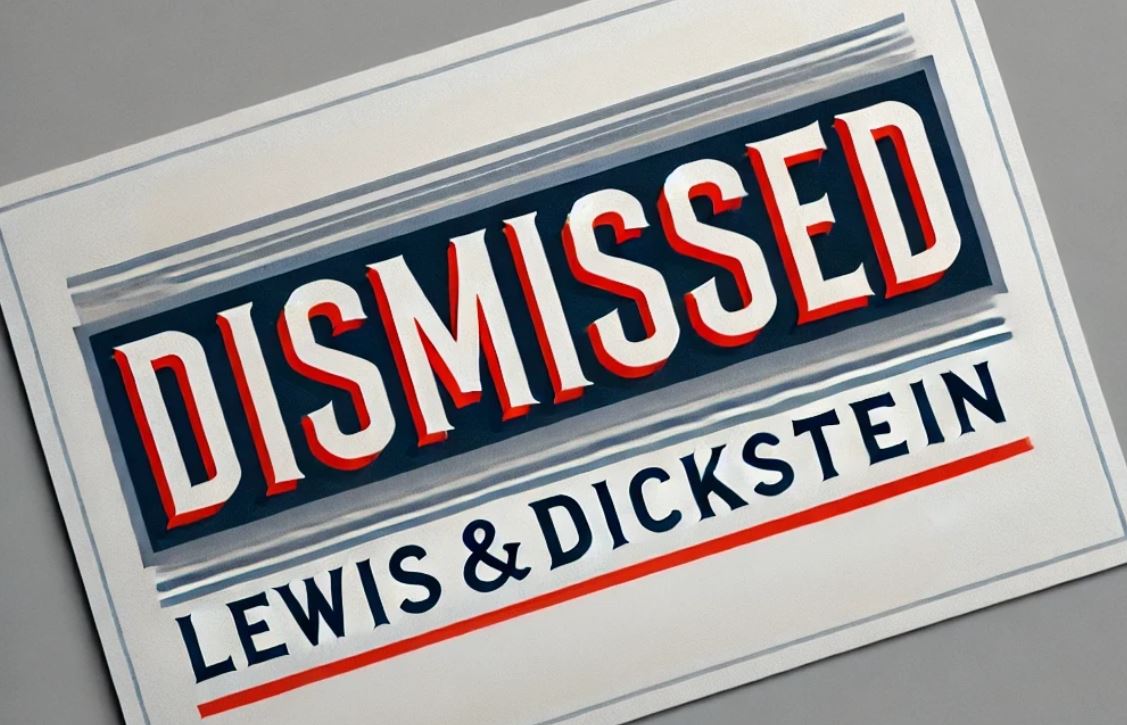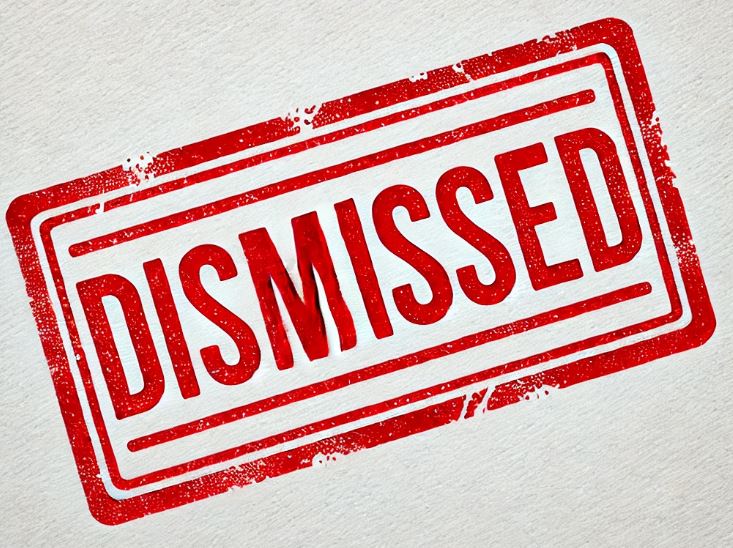How Do I Get My Case Dismissed?
When a criminal case is dismissed, the charges against the defendant are dropped, and the case does not go to trial.

Getting Criminal Charges Dismissed
Knowing the basic grounds and techniques for getting a case dismissed can greatly assist anyone facing criminal charges, particularly in Michigan. Often, the anxiety that comes with criminal charges leads to one burning question: “How do I get my case dismissed?” At LEWIS & DICKSTEIN, P.L.L.C., we specialize in defending clients against felony and misdemeanor charges. We are here to guide you through the complexities of fighting for the dismissal of your charges.
Understanding Case Dismissal
Getting a case dismissed means the charges are dropped, and the defendant is no longer subject to prosecution. Dismissal can occur at various stages of the legal process, such as pretrial conferences, preliminary examinations, or even during the trial itself. Understanding the grounds on which a case can be dismissed is crucial.

Signs Your Case Might Be Dismissed
There are several indicators that your case might be heading toward dismissal. Common signs include a lack of evidence, procedural errors by the prosecution, violations of your constitutional rights, and witnesses unwilling or unable to testify. If crucial evidence is deemed inadmissible, the prosecution may be left with an insufficient case against you.
Grounds for Dismissal
- Insufficient Evidence or Lack of Probable Cause: One of the most common reasons the attorneys with LEWIS & DICKSTEIN, P.L.L.C. get charges dismissed is the lack of sufficient evidence to support the charges. Keep in mind that it’s not enough to “have” evidence – that evidence must be admissible. If the prosecution cannot present enough credible, admissible evidence, your attorney can demand dismissal of all charges.
- Constitutional Violations: Violations of your constitutional rights, such as illegal searches and seizures or failure to provide Miranda warnings, can lead to dismissal. An aggressive defense attorney will scrutinize the actions of law enforcement to ensure your rights were not infringed.
- Procedural Errors: Mistakes made during the criminal justice process, such as filing errors, improper delays, or mishandling of evidence, can help you get your case dismissed. These errors can be fatal to the prosecution’s case or can significantly weaken it.
- Lack of Jurisdiction: If the court does not have jurisdiction over your case, it must be dismissed. The court lacks jurisdiction if the crime did not occur within its geographic area or the specific legal issue is outside its purview. The defense attorneys at LEWIS & DICKSTEIN, P.L.L.C. have the experience and knowledge to challenge the Court’s ability to hear the case if the matter is outside the Court’s jurisdiction.
- Witness Issues: The prosecution’s case can fall apart if vital witnesses are unavailable, uncooperative, or lack credibility. Without reliable witnesses, proving the alleged charges beyond a reasonable doubt becomes challenging.

Steps to Take When Seeking to Get My Case Dismissed Charges
Hire a Competent Attorney to Get the Case Dismissed
It is essential to have a criminal defense attorney with extensive experience and a record of success, such as the attorneys with LEWIS & DICKSTEIN, P.L.L.C. Attorneys who are well-versed in defense strategies recognize the areas in which the prosecution’s case is lacking and determine the most effective way to proceed. A skilled lawyer can submit the proper pretrial motions that can result in the dismissal of your charges and put this matter behind you.
File Pretrial Motions to Get Case Dismissed
Several pretrial motions can lead to a dismissal, such as a Motion to Quash, a Motion to Dismiss for Lack of Evidence, a Motion to Suppress Evidence, a Brady Motion, a Motion to Dismiss Due to Speedy Trial Violation, and a Motion to Dismiss Due to an Improper or Defective Criminal Investigation or Prosecution.
Negotiate with the Prosecution to Get Case Dismissed
Getting a case dismissed requires more than legal expertise; it also requires effective persuasive and negotiation techniques. Sometimes, the best approach is to work out a settlement with the prosecution for a lesser offense. Negotiating with the prosecution could result in exposing the case’s flaws or presenting circumstances or facts that would make a dismissal or reduction in charges advantageous to the prosecution.
Participate in a Diversion Program
Michigan law and some courts and prosecutors offer pretrial diversion programs. Typically, these programs combine educational classes, restitution, and community service. The benefit to a Defendant is that the charges are dismissed or become nonpublic if a defendant completes a diversion program.
Prove Your Innocence
Presenting the prosecution with tangible proof of your innocence, such as an alibi or exculpatory evidence, can help get your case dismissed. In some cases, the results of a successful polygraph test, although generally inadmissible in Court, can be presented to the prosecution and used as a powerful negotiating tool.

Challenge the Credibility of Witnesses
If the prosecution’s case against you mostly depends on the testimony of witnesses, then casting doubt on the reliability of these witnesses may result in dismissal by drawing attention to contradictions in their claims or offering proof that demonstrates a bias or casts doubt on their dependability.
Take Advantage of Statutory Protections
With effective plea bargaining, a defendant can take advantage of several Michigan laws to get a case dismissed. For instance, after completing probation, young offenders (those between the ages of 17 and 26) may be eligible to have their charges dropped under the Holmes Youthful Trainee Act. Other laws that result in getting a case dismissed include MCL 333.7411 (controlled substances), MCL 769.4a (domestic violence), and MCR 771.1 (Delayed Sentence).
Common Questions About Case Dismissals
- Can a case be dismissed at a pretrial conference? The prosecution might elect to dismiss charges at a pretrial conference for several reasons, including, but not limited to, plea bargaining or the failure of a witness to appear in court if subpoenaed.
- What happens when a case is dismissed in court? When a judge or prosecutor dismisses charges, the defendant’s case is closed. If the case is dismissed with prejudice, the prosecutor cannot refile charges. The prosecution may attempt to refile the charges if the case is dismissed without prejudice.
- Why would a case be dismissed with prejudice? A case might be dismissed with prejudice, preventing the prosecutor from refiling the charges due to severe legal errors, lack of evidence, or misconduct by law enforcement or prosecutors that irreparably taints the case.
- What does it mean when a case is dismissed? A dismissed case is no longer pending in court, and the defendant is no longer charged with a crime.

How LEWIS & DICKSTEIN, P.L.L.C. Can Fight for Dismissal of Your Charges
Navigating the legal system requires expertise and a deep understanding of criminal law. At LEWIS & DICKSTEIN, P.L.L.C., our experienced attorneys are dedicated to providing top-notch defense strategies tailored to your unique situation. We will thoroughly investigate your case, identify potential grounds for dismissal, and advocate tirelessly on your behalf.
If you are facing criminal charges and are seeking a dismissal, contact LEWIS & DICKSTEIN, P.L.L.C. today to schedule a free consultation and give yourself the best chance at success. Let us help you understand your options and work towards the best possible outcome for your case.
Call us today at (248) 263-6800 for a free consultation or complete an online Request for Assistance Form. We will contact you promptly and find a way to help you.














